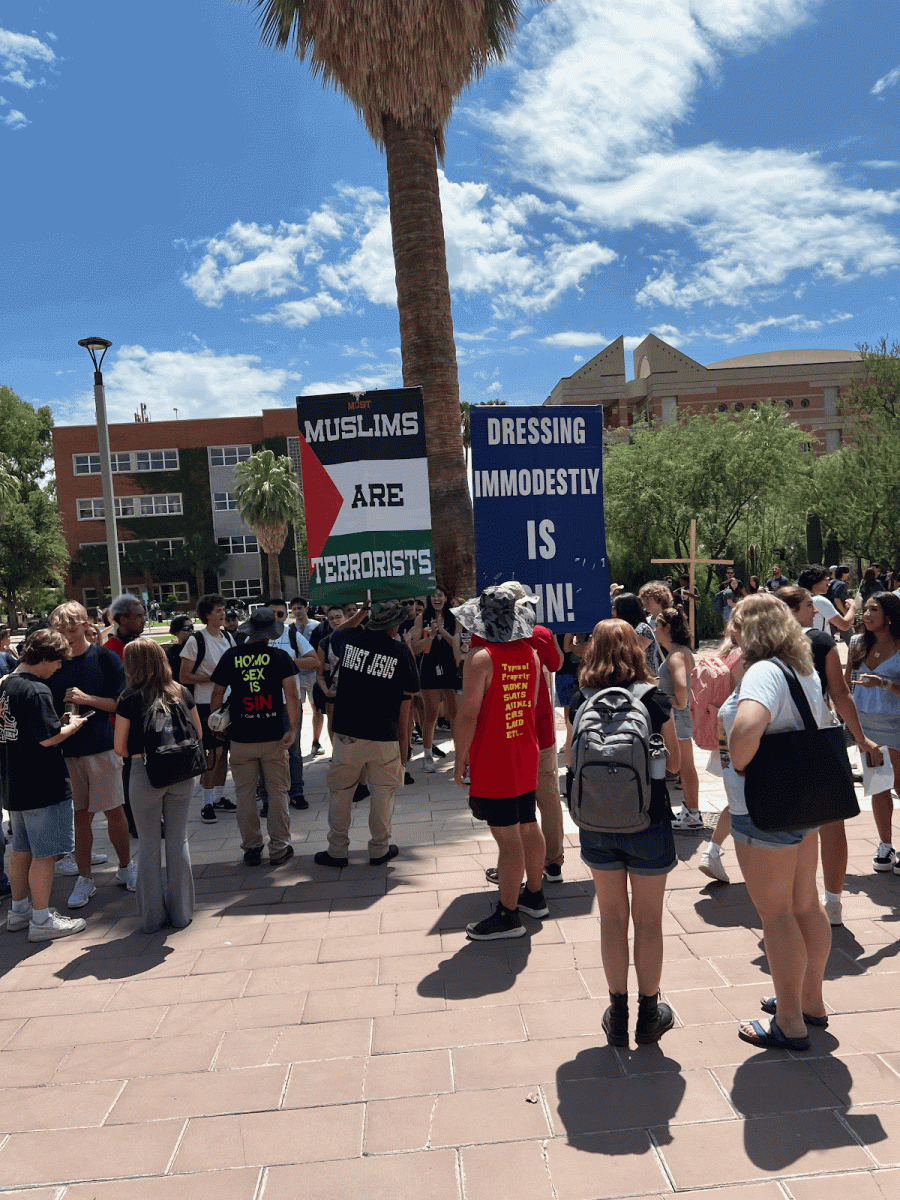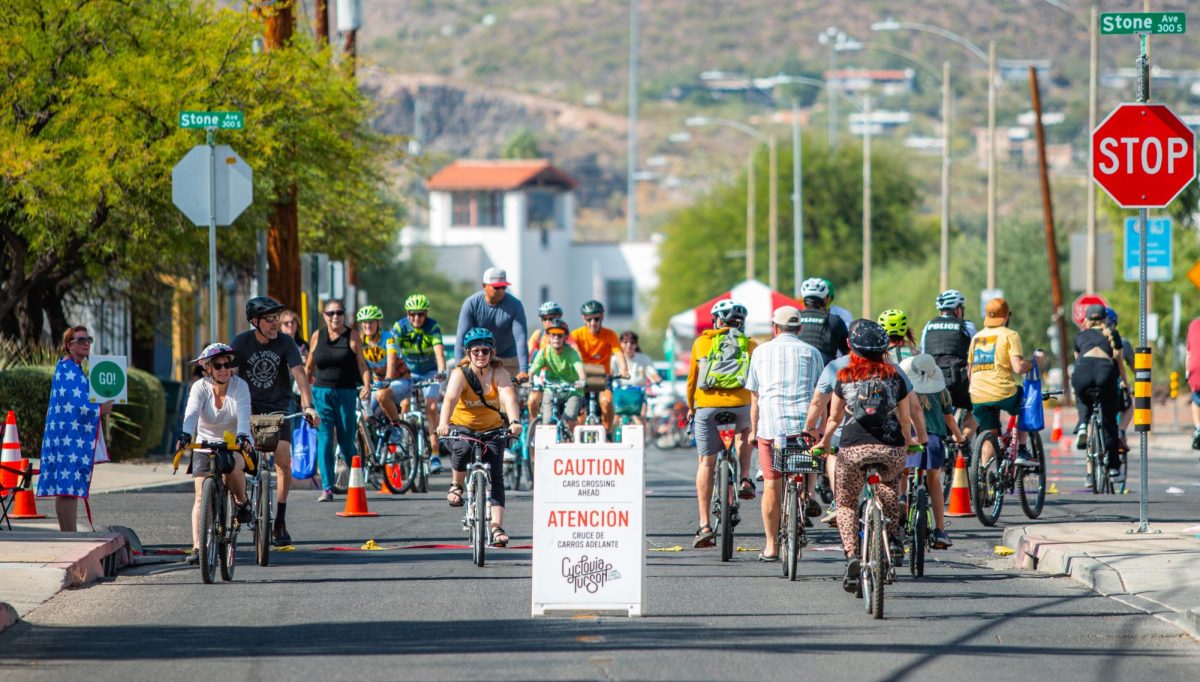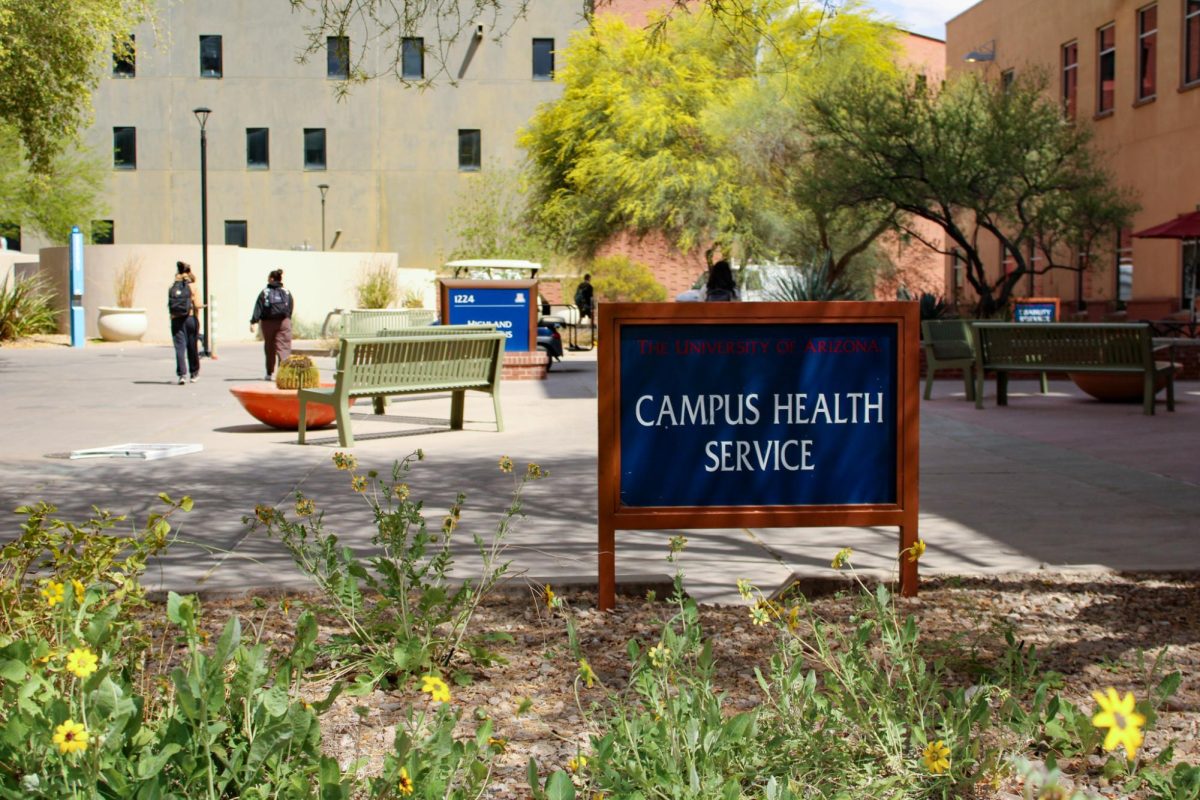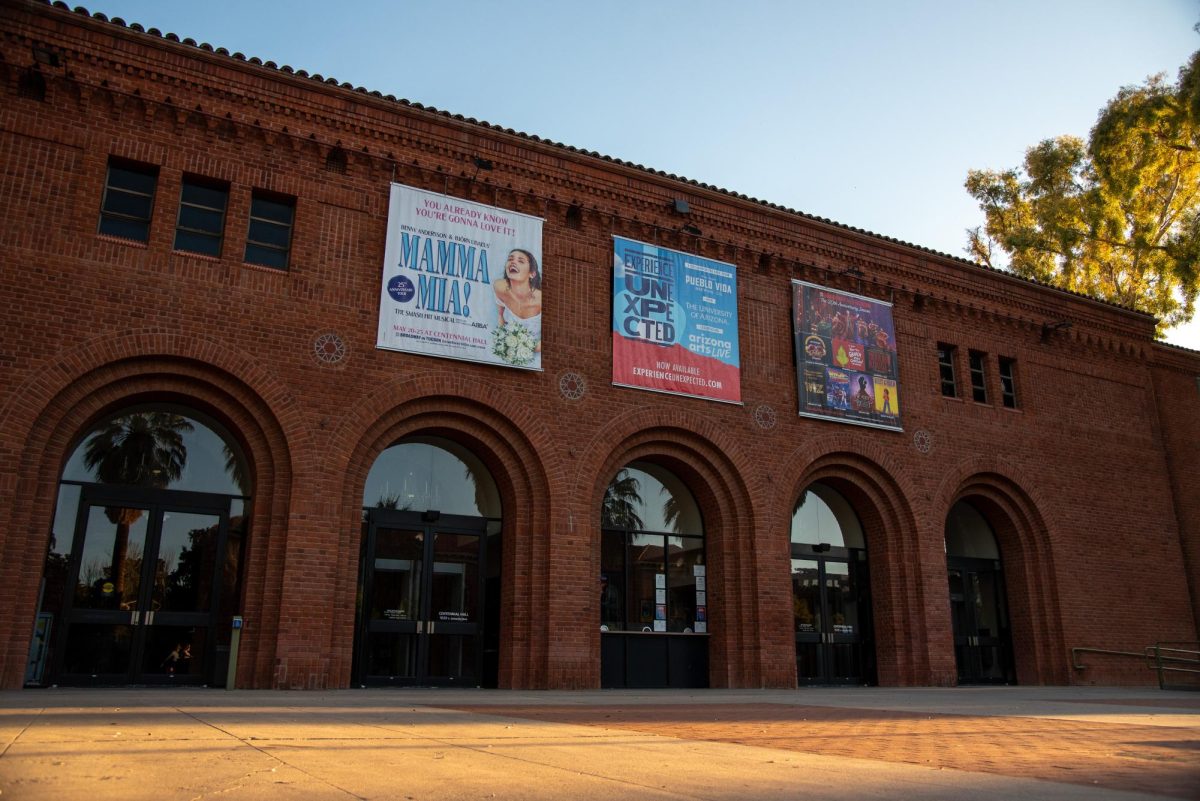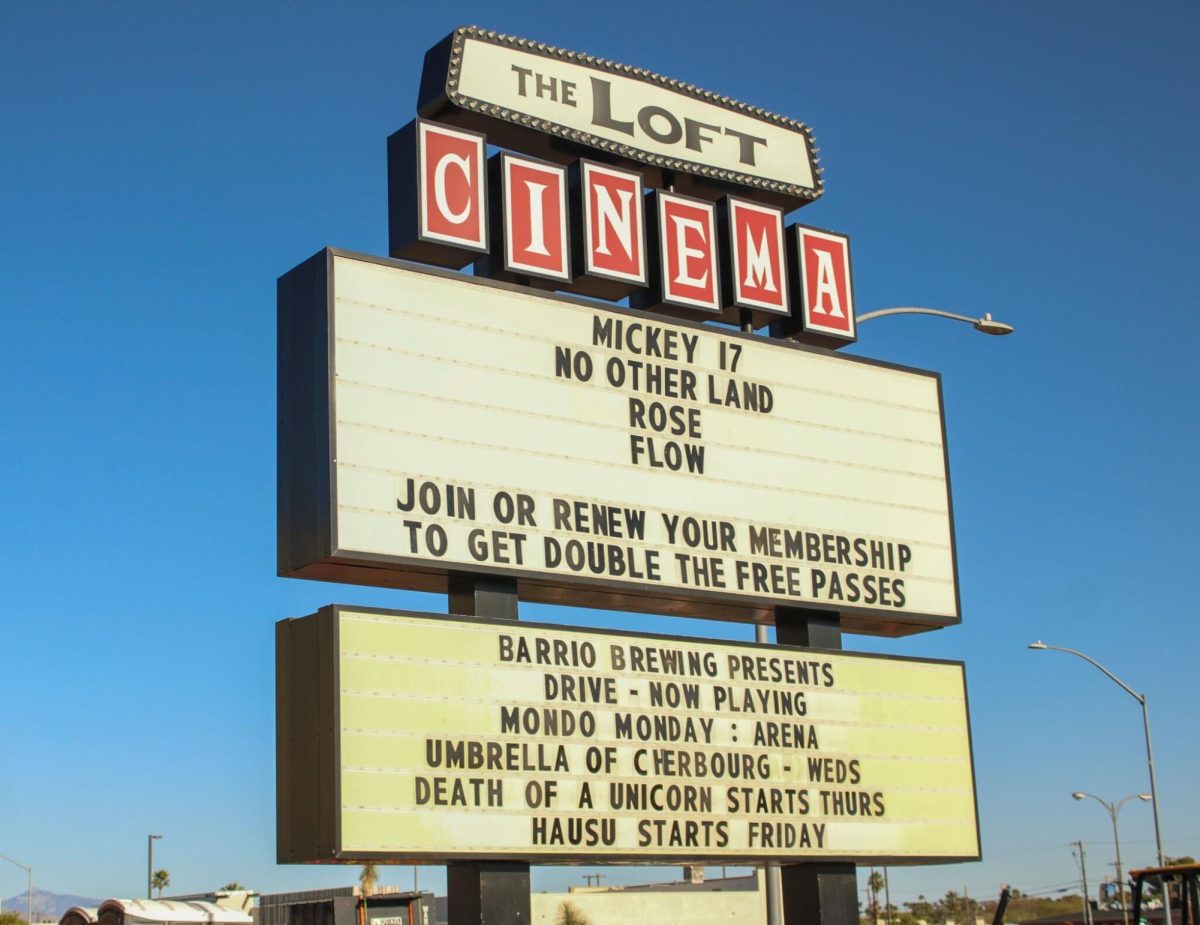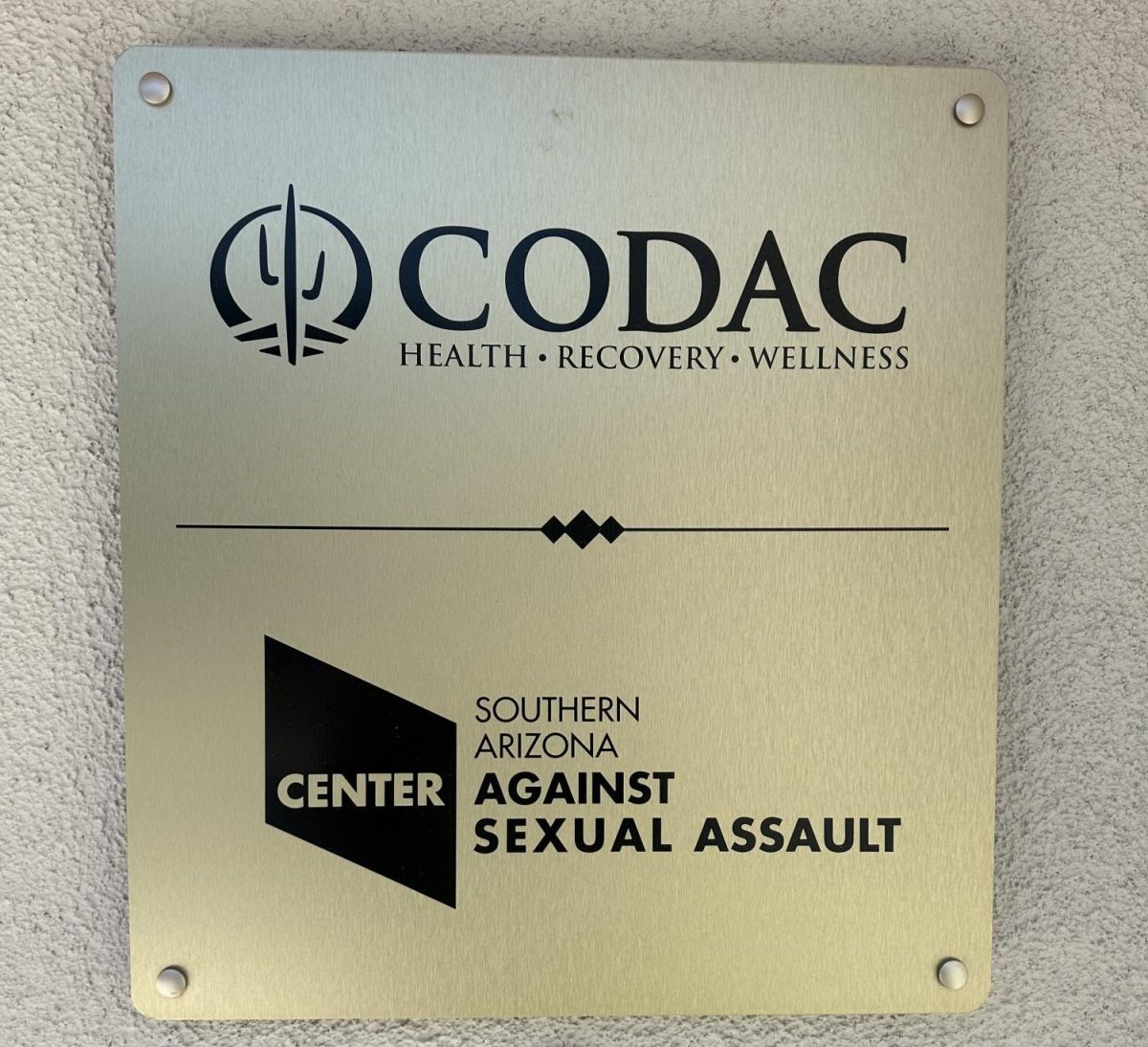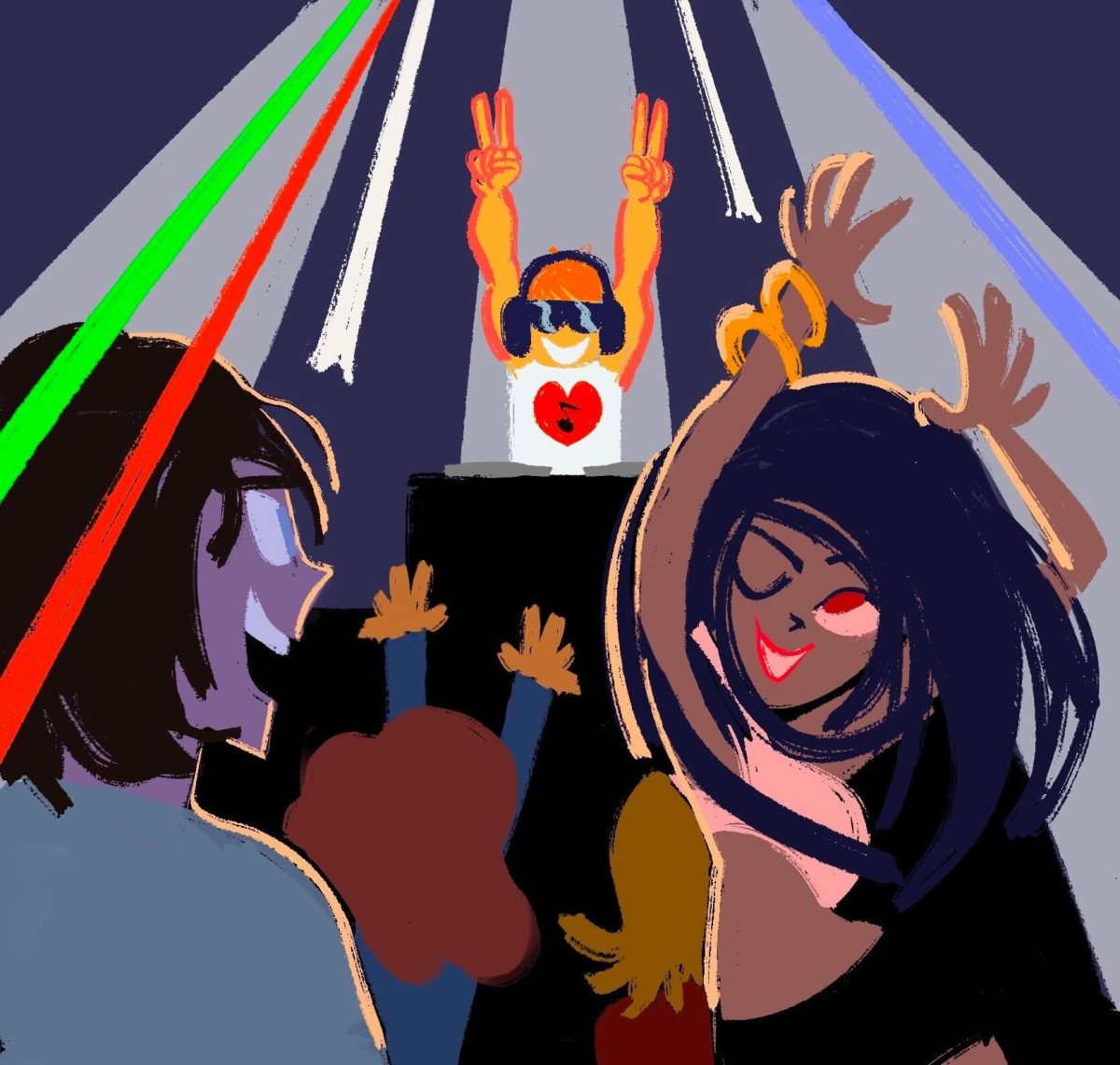It was no surprise to many returning students that when fall classes started at the University of Arizona on Aug. 26, so did demonstrations regarding religion.
The demonstrations included signs that said, “Dressing immodestly is a sin” and “Women are property” and used religion to back up those claims. The controversial statements caused anger amongst many students, and for some religious clubs on campus, it also caused a sense of worry.
One of these clubs is The Well Campus Ministry, whose members say it supports students in their faith journey.
“I’m sad that people might think that they represent faith; that that is what it looks like,” said Well Campus Minister Amy Kendall. “It reflects so poorly on people who are trying to love like Jesus and trying to live how he taught.”
She said she experienced the result of demonstrators’ statements firsthand when a distressed student approached their club table.
“A young man came up and I could tell he was very upset by what he heard, and we just assured him that we were with him, that we understand it’s very upsetting,” Kendall said. “It’s meant to be upsetting.”
A member of the UA club The Navigators also discussed their mission and their feelings towards the demonstrations.
“We allow any student with any background, whether they’re Christian or not, to come and explore the faith,” said Navigator Campus Director Cameron Kessner. “We provide a safe place to explore those things and answer questions.”
Described by Kessner as “reputable around the world,” the organization has seen its fair share of religious demonstrations.
“There are so many demonstrations out there that really don’t represent our mission or what we’re hoping to see on campus, which is healthy conversation about Jesus and for a good understanding of what Jesus actually says or preaches,” Kessner said.
He said there can be some truth to what students are hearing, but it’s not what the quote is supposed to mean.
“Now, are there things that they say that are from the Bible? Certainly,” Kessner said. “They’ll take a quote out of context and say this is what God says.”
Kessner said his next step is opening up the Bible and giving students context and visuals of the Biblical practices The Navigators, as an organization, follow and teach.
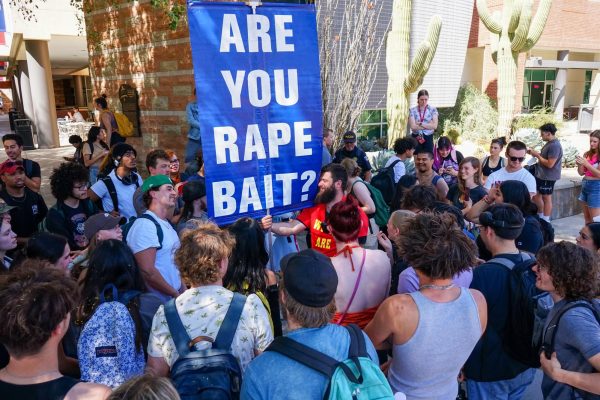
Students may not know Jim Jackson’s name, but they might recognize his face and the sign he holds. He sits on a bench outside the Student Union Memorial Center and sets up chairs and his sign that reads, “What did the prophet Jesus teach?” Then, he waits for students to approach him. He said he wants to learn about their story and have a conversation with them.
Many demonstrations happen right next to Jackson. Some of them, he said, he doesn’t mind, while others are less than ideal.
“There have been at least two different sets of preachers, and the one that I am familiar with, and I really appreciate, they’re really trying to reach out in dialogue and trying to reach out in love,” Jackson said. “There was a young man that was preaching a while back that seemed to have a totally different approach, and he was calling people names and, in my estimation, creating less opportunity for dialogue. Less opportunity for people to even be open to listening to the message.”
While these people are all a part of different organizations or no organization at all, they share a similar approach: They let students come to them, they ask questions and they listen.
Jesus, Kessner said, asks more questions than he gives answers.
“So, I want to model the way that we help our students engage with people, which is to ask why you are hurting in this way,” he said.
As the semester goes on, controversial religious demonstrators will likely continue to spread their message on campus, and the clubs and evangelists like Jackson said they will continue to spread theirs.



